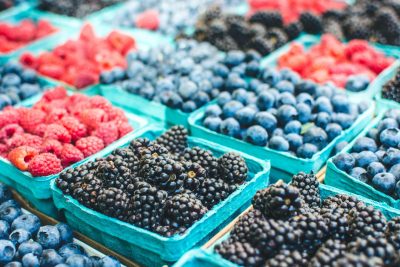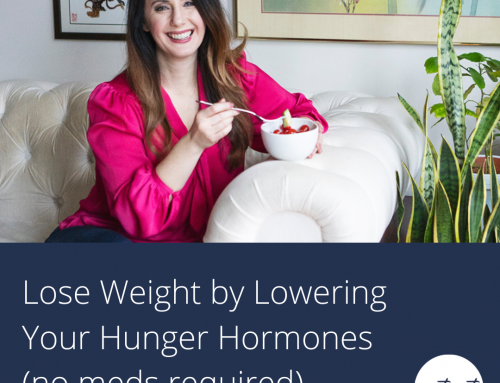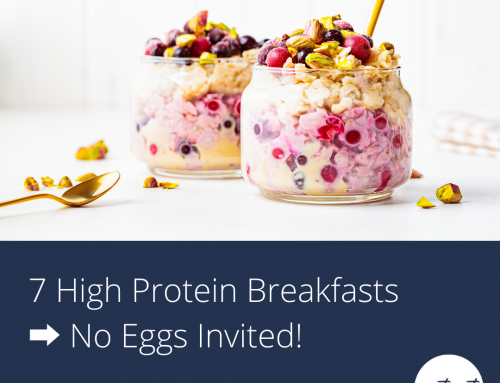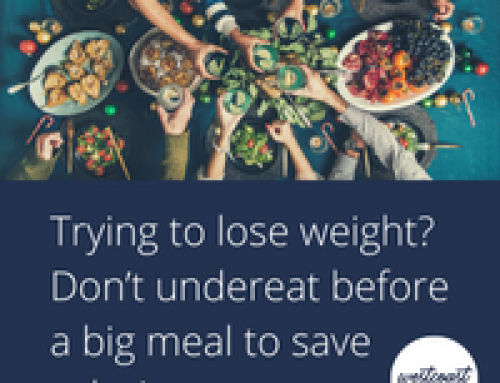Depending which corner of the internet you’ve been on lately, low carb diet devotees will tell you that carbs are the root of all evil or plant based advocates might sell you that carbs are the healthiest nutrient of them all. The answer, like most things nutrition and science, lies somewhere in the middle and depends on YOUR body. Let’s dive in!
A Quick Primer: What are carbs?
Carbohydrates are molecules primarily made out of carbon + hydrogen and oxygen (similar to water) – hence carbo-hydrate. Our bodies are ultra efficient at using carbs to create chemical energy both for immediate use and to store for a rainy day as glycogen (just stored carbohydrate) in our muscle and liver.
Carbs in food are sugars, starches and fibres. Examples of a few:
- Sugars : Fruit, sweets, baked goods, beets, carrots
- Starches: Potatoes, corn, whole grains like quinoa, wheat and flour based foods (pasta, bread, crackers), winter squash like acorn and butternut, and in beans and legumes like peas, chickpeas and lentils.
- Fibres: Found in all of the whole foods above! Especially rich in berries, whole grains, and even lower carbohydrate foods like seeds and dark leafy greens.
The tricky part: How much do we need?
Contrary to old school thinking, there is no established minimum intake for carbs in healthy adults. Our brain can function on both glucose, ketones and another fuel lactate. Our bodies are perfectly capable of creating glucose for the brain in our liver from the backbone of fat molecules and from having enough protein in our diet.
But, you know I always reach for optimal – not just survival. How much carb you thrive on depends on a few things:
- The younger (below 30’s), more active in high intensity sports or exercises, and fitter you are the more carbs you may benefit from up to about 40-60% of your daily calories.
- The older you are, less active (especially high intensity heart pumping activity), more insulin resistant (ie prediabetes, diabetes, overweight, or hormonal conditions like PCOS) and more sedentary you are the less carbs your body will have a use for.
This is because as we get older or less active our bodies become less insulin sensitive. That means that when you eat carbs, your body puts out insulin to try and get the carbs in to your healthy cells like your muscle – but the knock on the cell’s door doesn’t open it up. So the excess blood sugar floating around which is harmful moves down the hallway to your fat cells, which stay insulin sensitive (they open their door at the very first knock) your whole life. Having more carbs than you need tends to increase fat storage, which is the very thing most of us are trying to prevent! Having carbs frequently or in high amounts also causes more and more insulin to be released, which dulls your healthy cell’s response to that knock on the door even more. This cycle is, in part, what can lead to diabetes in some people.
Several digestive conditions, from Irritable bowel syndrome to Small Intestinal Bowel Overgrowth may also do better with a short term reduction in total carbs, or finessing the types you eat to speed healing.
To be clear – carbs are not in and of themselves bad. They’re just food! Having too much for your body and lifestyle is the problem.
On the flip side, I do come across clients who would benefit from more carbs as well. This is the key part of nutrition, you need to do the digging (or get help) to unearth what YOUR body needs.
Some of the clients who benefit from us bumping it up :
- Chronic overtraining or under eating, and conditions such as RED-S.
- Certain genetic makeups
- Endurance training – we’re talking more than 6-8 hours per week of running, swimming, cycling etc.
- Some hormonal disorders, fertility struggles
- Chronic stress – may respond better to a gentler/moderate nutrition approach
- Lots of high intensity workouts – crossfit, metabolic type workouts
- Active/Athlete teens and twenties – they’re insulin sensitive and burning through quite a bit of both energy (calories) and carbohydrate.
My take home message here is not that carbs are good OR bad. They’re a nutrient that we sometimes abuse, but can also be a rich source of nutrients in the right context. The best first step – try swapping out more processed carbs like pasta, crackers, baked goods, cereals etc for whole food carbs that are chock full of nutrients. Think fruit, whole grains, and starchy veggies like yams. More on this in next week’s email where we dive right in to choosing the healthiest, most nourishing carbs and how to balance convenience and nutrition in this food group.
I know this is a topic that can be SUPER confusing given all the internet chatter. What questions do you have about carbs? It would be a huge help if you would reply here and let me know what you’re confused about, and I’ll answer them all in a Q and A email in later this month! Thank you so much – I’m so grateful you’re part of this little healthy eating tribe.
Loved this post? It originally went out to our email newsletter, but got so much feedback I wanted to share it here. If you’d like to receive our free Meal Planning Getting Started Guide AND get in on our weekly emails about all things nutrition so you can get clarity and confidence on what you’re eating, join us here!







